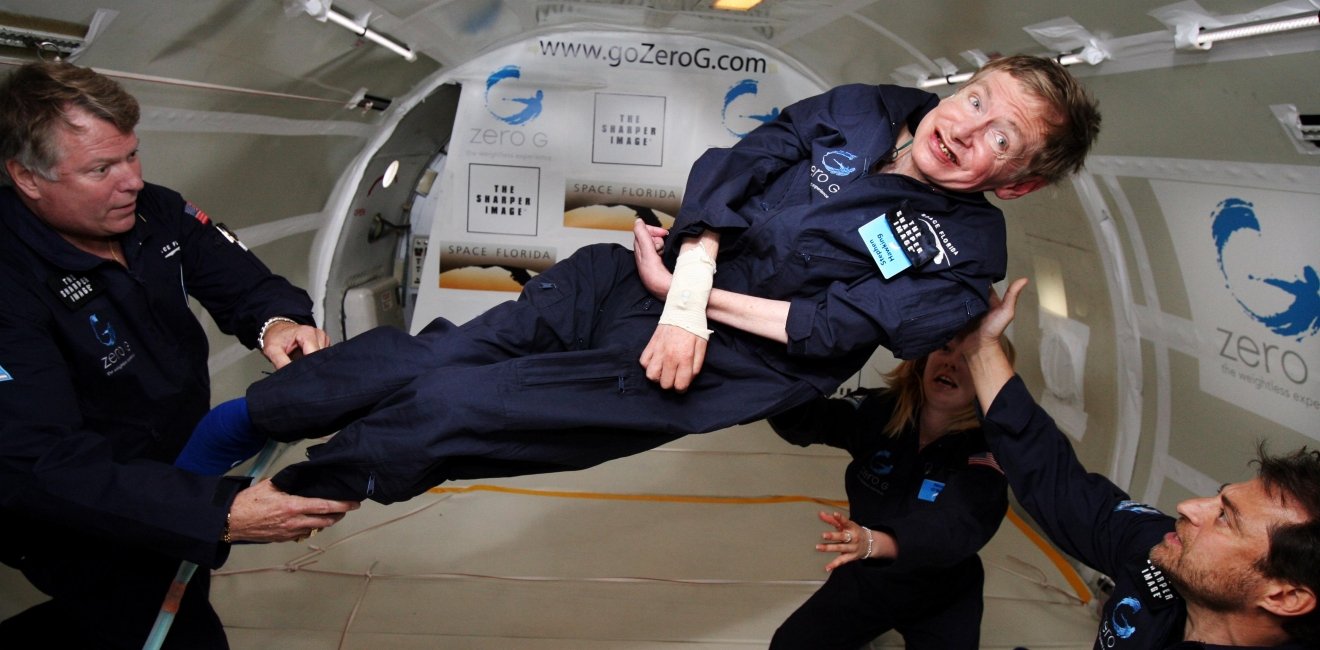
A blog of the Science and Technology Innovation Program

Dr. Stephen William Hawking was a titan in the scientific community, a pathfinder who changed the very way we understand space and time. Though a British physicist and cosmologist who earned his PhD from The University of Cambridge – later to become the Director of Research for the Centre for Theoretical Cosmology at the same university – his impact was global. In 2009, President Obama awarded Dr. Hawking the Presidential Medal of Freedom as one of sixteen “agents of change.” This is the highest civilian award, and was in part due to his work on the theoretical physics of black holes.
A star just went out in the cosmos. We have lost an amazing human being. Stephen Hawking fought and tamed the cosmos bravely for 76 years and taught us all something important about what it truly means to celebrate about being human. I will miss him.
— Lawrence M. Krauss (@LKrauss1) March 14, 2018While many are deservedly recognizing his scientific contributions today, what is most important to the Science and Technology Innovation Program are his contributions to the public communication of science.
Dr. Hawking is part of a legacy of scientists who not only created critical research, but also strove to make those achievements accessible to the public. The public communication of science was a cornerstone of Dr. Hawking's work, as he recognized that scientific findings did not exist in a black hole (pun intended!). His titles, such as A Brief History of Time which has sold over 10 million copies, gained not only notoriety in the physics community but were widely purchased abroad. To underscore the importance of theories in space, he brought physics down to earth.
"I want to know why the universe exists, why there is something greater than nothing." Thank you, Stephen Hawking, for pushing each and every one of us to be curious and to discover.
— Kirsty Duncan (@KirstyDuncanMP) March 14, 2018But he also made himself accessible, capitalizing on popular media to make visible those who might be otherwise lost in the ivory tower. This is not a feat to make light of, considering that Hawking's own neurological condition made communication difficult without technology. In many ways, he not only made science more public but also caused many to question the limitations and prejudices society imposes towards an able-bodied society.
And Dr. Hawking did it all with a very dry wit.
[[{"fid":"110426","view_mode":"default","fields":{"field_file_image_alt_text[und][0][value]":"Stephen Hawking being interviewed by John Oliver","field_file_image_title_text[und][0][value]":"","field_file_source[und][0][value]":"Know Your Meme","field_file_caption[und][0][value]":""},"type":"media","attributes":{"alt":"Stephen Hawking being interviewed by John Oliver","class":"media-element file-default"}}]]
It was this confluence of personality, perseverance and -- above all -- intelligence that in many ways made him so accessible. You have to meet the public where they are. In popular media, Dr. Hawking’s first TV appearance was on Star Trek: The Next Generation. He appeared on a scene where he played poker with Albert Einstein, Isaac Newton and an android. He has also made seven comedic appearances in the hugely popular show The Big Bang Theory. His other memorable cameos appearances include animated shows like The Simpsons and Futurama.
His passing has left an intellectual vacuum in his wake. But it's not empty. Think of it as a kind of vacuum energy permeating the fabric of spacetime that defies measure. Stephen Hawking, RIP 1942-2018. pic.twitter.com/nAanMySqkt
— Neil deGrasse Tyson (@neiltyson) March 14, 2018Dr. Hawking wrote about being on the shoulders of giants, and as a giant himself, he also provided a shoulder up for others. In 2016, as part of the Starmus Festival, they developed the Stephen Hawking Medal for Science Communication. Recognizing those in the scientific, artistic, and film communities, the essence of the award is to recognize those who "put science right at the heart of daily life." Award recipients include Hans Zimmer, Neil deGrasse Tyson, Jean-Michel Jarre, Jim Al-Khalili, "Particle Fever" and "The Big Bang Theory." This award embodies the diversity of ways that we can strive to make science accessible, that it does not have to be limited to peer-reviewed journals and books.
"Intelligence is the ability to adapt to change," Stephen Hawking once said. His legacy illustrates that one of those changes needs to be that we should encourage the public communication of science. It is just one of the many ways he inspired generations to look up at the stars.
Author




